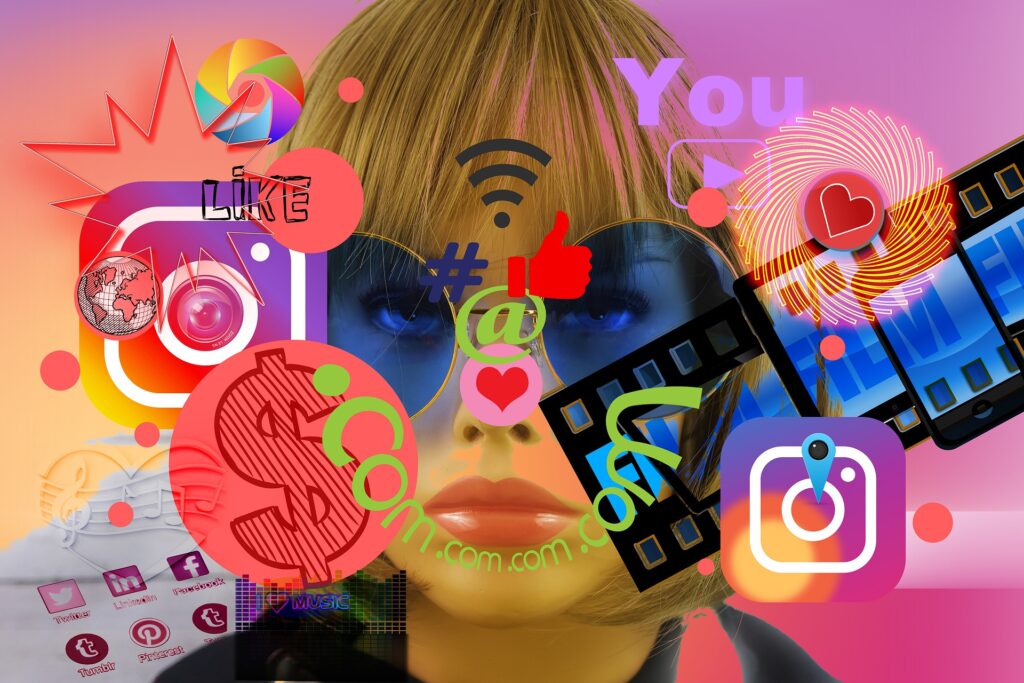In the vast landscape of digital marketing, influencers have emerged as powerful catalysts for brand visibility and consumer engagement. These social media personalities, with their ability to sway opinions and shape trends, bring forth a multitude of positive impacts. Let’s delve into the ways influencers are reshaping the marketing landscape for the better.
Positive Impacts of Influencers
- Authenticity and Trust:
Influencers often build a genuine connection with their followers. Their authenticity is like a breath of fresh air in a world inundated with advertisements. When an influencer endorses a product or service, it often feels like a friend’s recommendation. This authenticity fosters trust, a cornerstone of successful marketing. Consumers are more likely to believe and act upon recommendations that come from a source they trust.
- Reach and Exposure:
The reach of influencers is staggering. Whether it’s a beauty guru on Instagram or a tech enthusiast on YouTube, influencers have the power to expose your brand to a vast and diverse audience. This wide reach is invaluable, especially for businesses looking to expand their customer base. By partnering with influencers, brands can tap into new markets and demographics that might have been challenging to reach through traditional advertising methods.

- Engaging Storytelling:
Influencers are masters of storytelling. Through captivating content creation, they can turn a simple product into a compelling narrative. This form of marketing is not just about selling; it’s about creating an experience. The ability of influencers to weave stories around products or services adds an emotional layer that resonates with their audience. This emotional connection can lead to stronger brand loyalty and increased customer retention.
- Trendsetting and Innovation:
Influencers are often at the forefront of trends and innovations. Their keen eye for what’s new and exciting can breathe life into a brand. By associating with influencers, brands can position themselves as trendsetters, staying relevant in the ever-evolving landscape of consumer preferences. This can be particularly beneficial for industries where staying ahead of the curve is crucial.
- Diverse Perspectives and Inclusivity:
Influencers come from various backgrounds, cultures, and walks of life. Collaborating with a diverse range of influencers allows brands to communicate with a broad audience and showcase inclusivity. This not only broadens the brand’s appeal but also sends a positive message about diversity and representation.
- Measurable Impact and Analytics:
One of the significant advantages of influencer marketing is the ability to track and measure its impact. Through analytics, brands can gain insights into the performance of their influencer campaigns. This data-driven approach allows for more informed decision-making, helping brands refine their strategies for better results in subsequent campaigns.
In conclusion, the positive impacts of influencers are multifaceted. From building trust and authenticity to expanding reach and embracing diversity, influencers have become indispensable allies for brands navigating the competitive landscape of digital marketing. As we continue to witness the evolution of influencer marketing, one thing remains clear – the positive impacts are here to stay.
Negative Effects of Social Media Influencers
In the era of digital marketing, social media influencers wield considerable influence, but it’s essential to acknowledge that this influence isn’t always a panacea for brand success. As brands increasingly align themselves with influencers, there are notable negative impacts that require careful consideration. Let’s explore the potential pitfalls associated with social media influencers.
- Authenticity Risks:
While influencers are praised for their authenticity, there’s a fine line between genuine content and promotional material. When influencers endorse multiple products or services, authenticity can take a hit. Audiences may become skeptical, questioning the sincerity of the influencer’s recommendations. If authenticity is compromised, it can erode the trust that consumers place in both the influencer and the brand they endorse.
- Image Mismatch:
Choosing the wrong influencer can result in a misalignment of brand image. If an influencer’s values or personal brand clash with your product, it can confuse and alienate your target audience. A mismatched association might dilute your brand identity and lead to a disconnect between your message and the influencer’s audience.

- Follower Quality vs. Quantity:
While reach is often a positive aspect, it can also be misleading. The sheer number of followers an influencer has doesn’t guarantee engagement or conversion. Some influencers may have a large following that includes fake accounts or disinterested individuals. Brands may find themselves investing in reach without a corresponding increase in genuine engagement or conversion rates.
- Controversy and Backlash:
In the volatile world of social media, influencers are not immune to controversy. If an influencer finds themselves embroiled in a scandal or expresses controversial views, your brand could be inadvertently associated with the negativity. Managing potential fallout from such situations becomes a significant challenge for brands, as public perception can quickly turn against both the influencer and the products they promote.
- Oversaturation and Follower Fatigue:
As the influencer market grows, audiences may experience oversaturation. Seeing the same influencers promoting various products across different platforms can lead to follower fatigue. Your brand might get lost in the noise, and the impact of influencer marketing may diminish as audiences become desensitized to promotional content.
- Difficulty in Measurement:
Measuring the effectiveness of influencer marketing can be challenging. While there are tools to track metrics, determining the exact return on investment (ROI) is elusive. The lack of clear metrics can make it difficult for brands to assess the success of their influencer campaigns and justify their marketing budget allocation.
Conclusion
In conclusion, while social media influencers offer tremendous potential for brand exposure, it’s crucial to be aware of the negative impacts that may arise. Authenticity risks, image mismatches, follower quality concerns, potential for controversy, oversaturation, and measurement difficulties should be carefully considered when incorporating influencers into your brand strategy. Striking a balance and conducting thorough research before entering into influencer partnerships can help mitigate these risks and ensure a more successful and sustainable brand-influencer collaboration.




